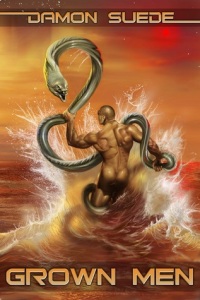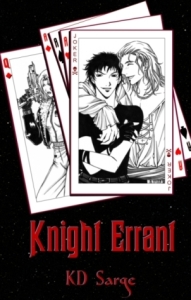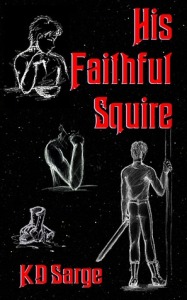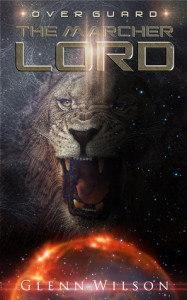I feel I should give readers of a more sensitive nature a warning that the short story I review at the end of this post is a little on the strange side and if you follow the link provided you’re likely to encounter some unexpected nudity. Just go in knowing that so no one is caught unawares. 🙂 I’m keeping things brief tonight, two short reviews for two shortish stories.
 I bought a copy of Damon Suede‘s Grown Men.
I bought a copy of Damon Suede‘s Grown Men.
Description from Goodreads:
Marooned in the galactic backwaters of the HardCell company, colonist Runt struggles to eke out an existence on a newly-terraformed tropical planetoid. Since his clone-wife died on entry, he’s been doing the work of two on his failing protein farm. Overworked and undersized, Runt’s dwindling hope of earning corporate citizenship has turned to fear of violent “retirement.”
When an overdue crate of provisions crashes on his beach, Runt searches frantically for a replacement wife among the tools and food. Instead he gets Ox, a mute hulk who seems more like a corporate assassin than a simple offworld farmer.
Shackwacky and near-starving, Runt has no choice but to work with his silent partner despite his mounting paranoia and the unsettling appeal of Ox’s genetically altered pheromones. Ox plays the part of the gentle giant well, but Runt’s still not convinced he hasn’t arrived with murder in mind.
Between brutal desire and the seeds of a relationship, Runt’s fears and Ox’s inhuman past collide on a fertile world where hope and love just might have room to grow.
Review:
I thought that this was surprisingly sweet. Ox is this gentle giant that you can’t help but adore and Runt shows an amazing ability to trust and eventually love. (Though he does seem to do a lot of things “without thinking.”) Plus, the whole thing is set in a wonderfully vivid world with clear imagery made possible by sharp writing.
I was in love with this book for about the first 2/3s. The whole thing fell apart for me in the, frankly, strange sex scene. I knew it was coming. The whole latter half of the book built up to it and I knew, being as Ox is SO much bigger than Runt, something out of the ordinary was going to have to transpire. And I’ll even grant that it was hot in its own way, but it also didn’t particularly rock my boat. Oh well. I’ll forgive it that one flaw and call it much better than expected.
Seedy Business is a free short story that chronicles the events leading up to Ox’s arrival on Runt’s farm.
Description from Goodreads:
Revenge can get sticky.
This prequel to Grown Men* is a crazy sci-fi short about sperm piracy and sibling rivalry gone seriously wrong.
When corporate mercenary Beirn agrees to a sleazy organ harvest job, he walks straight into his worst nightmare, a trap set by the twin brother he betrayed. Against his better judgment, Beirn teams up with a semen smuggler to save his own skin and hopefully make amends to the only family he has left.
Loathing turns to lust as the two men grapple with their violent impulses and their growing desire. In one terrible night, impossible feelings will force Beirn to understand the brother he betrayed and the mistakes he’s made.
Warning: doublecrosses, dirty sex, and designer testicles
Review:
That was…well…interesting. It’s about semen a pirate and a mercenary who happens to have sold his brother’s gonads. That should tell you something about the story. Actually that should tell you a lot about the story, maybe even everything you need to know about it. It’s just this side of gross, the sex is very similar to that in Grown Men, the MC has a whiplash change of heart (though he’s supposed to have had an epiphany as a result of his brother’s lesson) and the whole thing is just a little bit squinky. But if you’re in the mood for a little bizarro sex romp, the writing really is very good, so this one might fit the bill.





